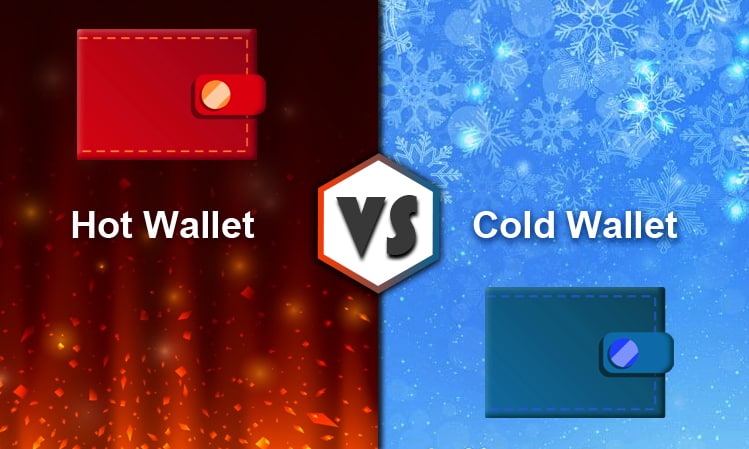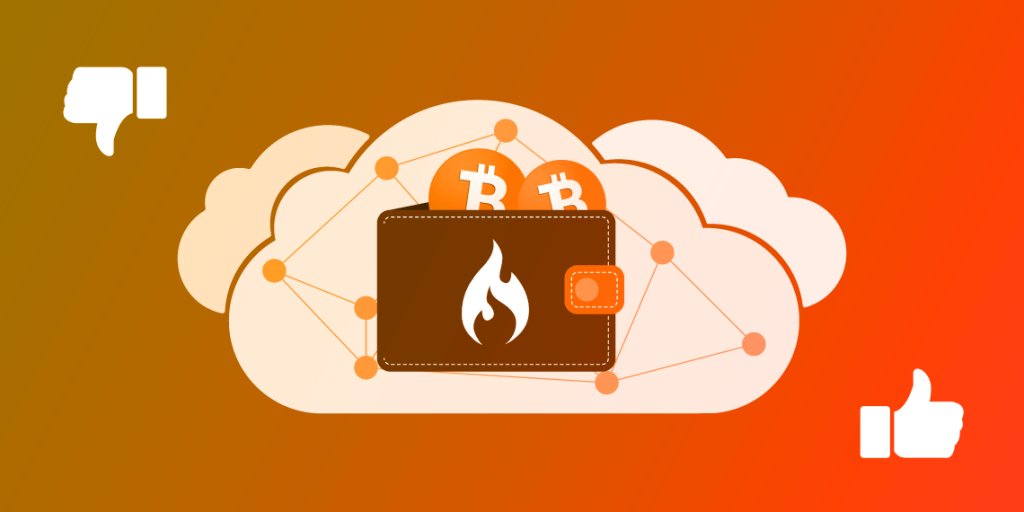Hot wallets vs cold wallets: the debate that could define the safety of your digital coins. Trust me, the choice is more than just picking a storage method; it’s about tailoring security to fit your lifestyle. Whether you make daily trades or stash crypto for the long haul, getting it right matters. Hot wallets offer you quick moves, while cold wallets lock down your loot. But which one will serve you best, and how can you use them without losing sleep over security risks? Let’s dive deep into each wallet’s world and find out how you can secure your crypto assets wisely.
Understanding Hot Wallets and Cold Wallets
What Are Hot Wallets and Their Common Uses
Hot wallets are like your online bank account for crypto. You use them to send, receive, and store digital coins. Think of them as your day-to-day wallet full of cash. They need an internet connection, and you can access them easily. People use hot wallets for quick payments and trading. You can find hot wallets as apps on a phone or programs on a computer.

Examples of hot wallets include mobile wallets like Coinbase Wallet and desktop wallets such as Exodus. These let you get to your crypto fast. But, with this ease comes risk. Being online means they can be hit by hackers. So, although hot wallets are good for small amounts you use often, they’re not the best for your life savings in crypto.
The Fundamentals of Cold Wallets and Their Unique Benefits
Cold wallets are the opposite. They’re offline, which makes them super safe. They store your crypto away from online threats. Think safety deposit box, not a wallet in your pocket. Many people use them to keep large amounts or for long-term investments. Since they don’t touch the internet much, hackers have a hard time getting to them.
Types of cold wallets include hardware wallets like Ledger Nano S and paper wallets, which is a piece of paper with your private key on it. It’s like holding onto a rare, valuable coin at home. You won’t spend it daily, but you know it’s secure.
Hardware wallets are cold wallets that look like USB drives. They’re prized for security but offer less quick access than hot wallets. With these, your private keys stay on the device and never expose themselves to online risks. The benefits of cold wallets are their top-notch security and peace of mind for storing more significant crypto amounts.
When you pick between hot and cold wallets, think about what you need. For daily use and small amounts, hot wallets work great. For big savings or long-term holds, cold wallets are the way to go. It’s all about finding the right balance for you. Always remember, your crypto’s safety is as secure as where and how you store it.
Evaluating the Security Aspects of Wallet Types
The Risks Associated with Hot Wallets
Hot wallets are like your everyday wallet. Think of how you carry cash. It’s handy for quick spending but can be risky. Like your wallet, hot wallets can be easy targets. They live online, making them convenient but vulnerable. Hackers know this and they’re smart. Imagine hot wallets as a house with doors. Hackers find ways to pick locks. So, if they break in, they could take what’s yours.
Now, this doesn’t mean all hot wallets are bad. You just need to be aware. Use them for money you need quick access to. But keep most of your crypto in a safer spot. This balance is key in managing the risks.
How Cold Wallets Enhance Digital Currency Protection
If hot wallets are like your cash-filled pocket, then cold wallets are your safe. Why are they safer? They’re not hooked up to the internet, simple as that. The best part? Hackers can’t touch what they can’t reach. They keep your private keys offline, locked away, out of sight.
Cold wallets come in different shapes. Think USB devices, like hardware wallets, or even paper with your codes written on it. They’re strong shields for your digital money. No net means no hackers. This doesn’t mean they’re perfect. You need to guard them from damage, or you could lose access.
Cold wallets are your bunker for crypto. Use them for savings, big amounts that need top-notch security. You don’t dip into these funds every day. So, it’s okay if it takes a bit more work to get to them. It’s all about keeping your crypto safe.
In our walk through the digital world, we must choose wisely. Hot wallets and cold wallets both have places in securing our assets. Hot wallets offer ease; cold wallets offer a shield. But remember, even the mightiest fortress needs a wise king to rule. Be that ruler. Be smart, spread your risk, and protect your treasure.
Practical Considerations for Wallet Selection
Choosing the right wallet for your crypto coins is no small task. Much of your choice will hinge on two aspects: your need for quick access to your coins (hot wallets), or your priority for a high level of security (cold wallets).
Balancing Accessibility with Security: Hot vs. Cold Wallet Usage
Hot wallets are online wallets. They’re always connected to the internet, which makes them easy to access. This is great if you use your coins often – you can have them at your fingertips whenever you need them. The downside is that, because they’re always online, they’re also a target for hackers. That’s where the term ‘hot’ comes from – they’re hot targets.
On the other hand, cold wallets are offline storage units for your coins. You use a hardware device, a piece of paper, or a software program to store your coins offline. This keeps them out of reach from hackers – hence why we say they’re ‘cold’. They’re not hot targets.
Even with a higher level of security, cold wallets aren’t without risks. If you lose your wallet, or if it gets stolen or damaged you may lose access to your coins forever.
The Intersection of Transaction Speed and Cost Efficiency in Wallet Choices
Transaction speed and cost efficiency also play a role in your choice of wallet.
Hot wallets process transactions faster because they’re always connected to the internet. On the downside, this means you might end up paying high transaction fees especially if the network is busy.
Cold wallets, being offline, aren’t as quick. But since you have full control over your coins, you can choose when to move them to reduce transaction costs.
The choice between a hot or cold wallet requires a keen understanding of your habits as a user. Do you value easy access and fast transactions? Then a hot wallet would be your pick. If you’re a long-term investor who isn’t making frequent transactions, a cold wallet might be more suitable for you.
Remember, the key is to understand your unique requirements and choose wisely. Always prioritize your crypto assets security and you can enjoy the exciting world of cryptocurrency without unnecessary stress. The choice is, ultimately, in your hands.
Implementing Best Practices for Cryptocurrency Storage
Strategies for Secure Cryptocurrency Storage and Private Key Management
When you dive into the world of crypto, you learn fast. You have digital assets to keep safe. That’s where knowing about hot wallets and cold wallets comes in handy. Both are tools to keep your crypto secure, but they do the job differently.
Hot wallets connect to the internet. Because of this, they’re super handy for quick trades and spending. Think of them like your real-world wallet, great for day-to-day use. Yet, you wouldn’t store all your money in your back pocket, right? That’s risky. Hot wallets face the same risks—online threats are real! Hackers are out there, and hot wallets are a target. So, we keep only a bit of crypto here, for daily needs.
Cold wallets, though? They’re like your safe. They stay offline. No internet means they’re much, much safer. Hackers can’t get what they can’t reach. But there’s a trade-off. You lose some speed and ease when you use cold wallets. It’s not as quick to grab your crypto and use it.
So, we balance. Use both wallet types to manage risk while keeping your crypto life smooth. Think about what you need day to day and what you want to keep safe for the long term.
Key safety is huge in keeping crypto safe. Each wallet has a private key. This key is like the key to your house, so you must keep it safe. If someone else gets it, they can take all your crypto. We don’t want that!
Utilizing Safety Measures: Encryption, 2-Factor Authentication, and Recovery Phrases
Safety steps are a must in crypto security. Think about it. You lock your door at home, right? You do that so nobody can walk right in. It’s the same idea with your crypto.
First up: encryption. This scrambles your private key into code. Only you can read it with your password. This means even if someone gets your key, they can’t use it. It’s locked tight in code.
Next, you’ve got 2-factor authentication (2FA). This is a double check to make sure it’s you. It’s like having a door with two locks. One lock opens with your key. The other needs a code sent to your phone. Together, they keep bad guys out.
Then we have recovery phrases. These are super-secret phrases given when you set up your wallet. If you lose access to your wallet, these phrases are your backup. It’s like having a spare key. But be smart! Write your recovery phrase down. Keep it safe and never share it. If you lose it, or if someone else finds it, you could lose your crypto.
Always remember, in crypto, it’s about being smart and safe. Using these safety measures keeps your digital money yours. That way, you keep what you earn, and you can spend or save however you like.
In this post, we explored the world of hot and cold wallets. Hot wallets are all about easy access, making daily transactions smooth. Cold wallets, though, are your digital cash’s safehouse, prized for their beefed-up security. When we weigh up wallet security, hot wallets face more risk, while cold wallets stand as strong guardians against digital theft.
Picking the right wallet requires a mix of convenience and security. A hot wallet might be your go-to for quick payments, but for your cryptocurrency stash, a cold wallet’s ironclad protection is unmatched. And let’s not forget, the quicker the transaction, the higher the fee.
Remember, keeping your crypto safe is not just about the right wallet. It’s also practicing smart habits. Always encrypt, never skimp on two-factor authentication, and keep those recovery phrases under lock and key. With these tips in your arsenal, you’re set to navigate the wallet waters with confidence and know-how. Stay sharp and make smart choices to keep your digital currency safe and sound. Follow Crypto Currency Bitcoin Price to update more knowledge about Crypto.
Q&A :
1. What is the difference between hot wallets and cold wallets?
Hot wallets and cold wallets are both cryptocurrency storage options, but they function differently. Hot wallets are connected to the internet and provide convenient access, ideal for regular transactions. However, they are more prone to cyber threats. Cold wallets, on the other hand, are offline storage devices that provide better security against hacking but are less convenient for frequent use.
2. Which is safer, a hot wallet or a cold wallet?
In terms of security, cold wallets are considered safer than hot wallets. This is due to their offline nature, effectively protecting your cryptocurrencies from online hackers. Hot wallets, while offering more convenience, are more susceptive to cyber threats due to their constant internet connection.
3. What are the advantages and disadvantages of hot wallets and cold wallets?
Hot wallets provide the advantage of ease of access and convenience for trades and transactions, making them suited for active cryptocurrency users. The major disadvantage is their vulnerability to online attacks. Cold wallets provide the best security as they are offline and immune from hacking attempts. However, their offline nature makes access and use less convenient than hot wallets.
4. Can a cold wallet be hacked?
While no storage method is completely fool-proof, the offline nature of cold wallets makes them highly resistant to hacking attempts. The only way a cold wallet can be compromised is if someone physically obtains the wallet and knows how to access it.
5. How do I choose between a hot wallet and a cold wallet?
The choice between a hot wallet and a cold wallet often comes down to your personal needs. If you actively trade or transact with cryptocurrencies and need regular access, a hot wallet might be the best option. If you value security and are holding cryptocurrencies as a long-term investment, a cold wallet could be more suitable. Remember, diversifying your storage methods can also be a good strategy to balance convenience and security.


